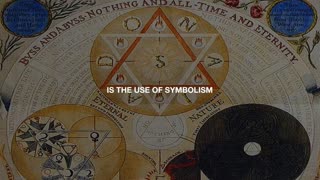Premium Only Content

Meditation Essentials 4: Action and Consequence
Meditation is a state of consciousness; it is a state of being. In that sense, it is something that is natural and inherent to all living things. It is the state of consciousness when it is unfiltered, unconditioned, and its natural state, without any interference in its ability to perceive and understand. That is the real nature of the consciousness.
As we are now, our perception and our understanding are filtered. They are conditioned by many factors. In order for us to experience the state of meditation, we need to remove the consciousness from its conditioning, and when we can successfully do that, we then spontaneously and naturally experience the state of meditation. Therefore, you could say that the correct attitude to develop the skill to meditate properly is not to focus attention on trying to reach the state of meditation, but instead to focus attention on removing the obstacles that prevent it. This is a very significant difference. Most people who study meditation are seeking the state of meditation. They are seeking an experience or a sensation. They want to feel something or not feel something. Some people go to meditation studies and practice meditation to escape their life, to escape from themselves. Those who are chasing after a sensation or an experience will always be disappointed, because truthfully, real meditation does not work that way. In the first few lectures we explained that. Today we are going to take those principles a little bit further.
We are going to talk about action and how through our constant action from moment to moment we create a trajectory or a movement across the whole of our life. If we become conscious of our action from moment to moment, we can become very skilled at accessing the state of meditation. It has to be approached in that way, because the state of meditation cannot be accessed unless one devotes everything to it; that may sound extreme, but it really does work that way. Meditation is a lifestyle. Meditation requires a very fundamental change in how we behave from moment to moment, how we engage the consciousness in each moment, how we utilize our energy in each moment, and how we utilize our perception in each moment. All of that united and working together is what makes our circumstances change, so that the state of meditation becomes more easily accessed, more easily experienced.
If we do not make those fundamental changes in each moment, we will never be able to enter the state of meditation at will. If we are attempting meditation regularly anyway, we might be able to enter that state occasionally by accident, and this is what happens with most people who learn meditation practices. They may learn how to sit properly, they may learn a mantra, they may learn a posture, and they may learn certain type of techniques and rigorously work with them, but because they do not modify how they use their consciousness and energy during the other twenty-three hours of their daily life, they cannot access the state of meditation at will, but only occasionally by accident. They may go months or years of trying to meditate, even on a daily basis, but fail to access that state. As a result, they may become frustrated and abandon their practice. This is extremely common, however it does not have to be that way.
If they learn to train their attention for the remaining time of the day that they are not actively sitting and practicing meditation, then when they actually do sit to practice meditation it will be easy because they have already been training all day and all night in preparation. That is why today's lecture is called "Action".
To understand what we mean by action we are going to look at this image from Tibetan Buddhism of the stages of meditative concentration.
-
 10:00
10:00
Awaken Your Inner Light
1 year agoThree Books of Occult Philosophy by Cornelius Agrippa
185 -
 58:10
58:10
The Criminal Connection Podcast
5 hours agoTerry Turbo: THE KING OF CLUBS! (One Nation, 90's Rave Scene Documentary)
101 -
 1:11:35
1:11:35
Russell Brand
4 hours agoRFK Jr. Challenges the System While Starmer’s UK Falls Apart – SF529
133K65 -
 2:42:40
2:42:40
Bannons War Room
13 hours agoDirector of Nat'l Intelligence Nominee Tulsi Gabbard Testifies at Confirmation Hearing
118K67 -
 1:01:58
1:01:58
The Rubin Report
4 hours agoCongress Sits in Stunned Silence After RFK Jr.’s Brutal Fact-Based Wake-Up Call
92.3K84 -
 1:09:51
1:09:51
The Dan Bongino Show
5 hours agoTragedy on the Potomac (Ep. 2412) - 01/30/2025
585K1.12K -
 2:15:23
2:15:23
Steven Crowder
6 hours agoDonald Unleashed: How Trump is Putting the Fear of God into Illegals and LGBT Radicals
416K154 -
 2:01:51
2:01:51
LFA TV
19 hours agoNOMINEES ASSEMBLE! | LIVE FROM AMERICA 1.30.25 11AM
45.1K7 -
 3:40:41
3:40:41
Bannons War Room
13 hours agoFBI Director Nominee Kash Patel Testifies at Confirmation Hearing
182K78 -
 LIVE
LIVE
Benny Johnson
6 hours ago🚨PANIC: Kash Patel FBI Director Confirmation Hearing LIVE Right NOW | Deep State on Life Support
26,217 watching